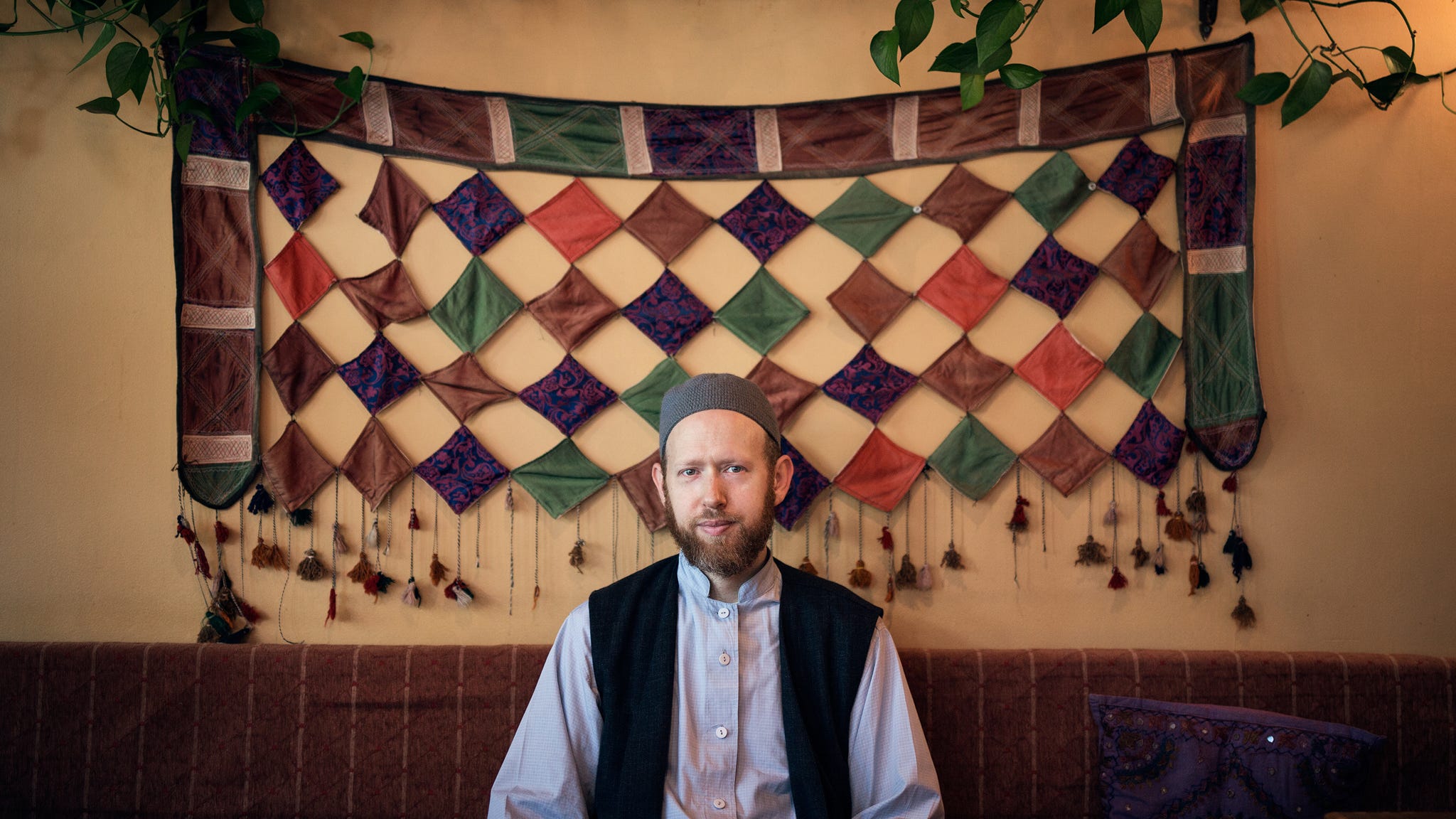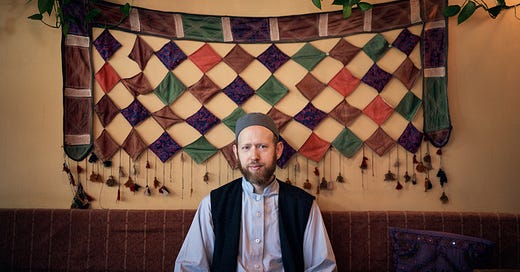What's a Nice Jewish Boy Like You Doing at a Mosque Like This?
Inside the life of a Jewish Sufi.

Photos by Joannie Lafrenière
Jonathan Friedmann is late to the mosque. A slim man with a red beard, green turban, and flowing black vest, he shuffles down a street full of vintage-clad twentysomethings. He had his appendix taken out just two weeks ago, and he’s feeling tired and worried. A bit headachy. But that’s all the more reason to go to dhikr, the Islamic mantra chanting session that he refers to as his “spiritual carwash.”
As he steps in the door at Montreal’s Naqshbandi Sufi Center, Friedmann, 38, sheds his shoes and joins a circle of Muslim men on the floor. Here, nobody calls him by his Jewish name – he’s known as Hassan.
Friedmann isn’t the only Jew at the mosque this evening. He’s one of a surprising number of Jewish men and women becoming active in Sufism, the mystical branch of Islam. Some of the worshippers here say they first heard about the Sufi Center from Jewish friends.
Keep reading with a 7-day free trial
Subscribe to Narratively to keep reading this post and get 7 days of free access to the full post archives.



